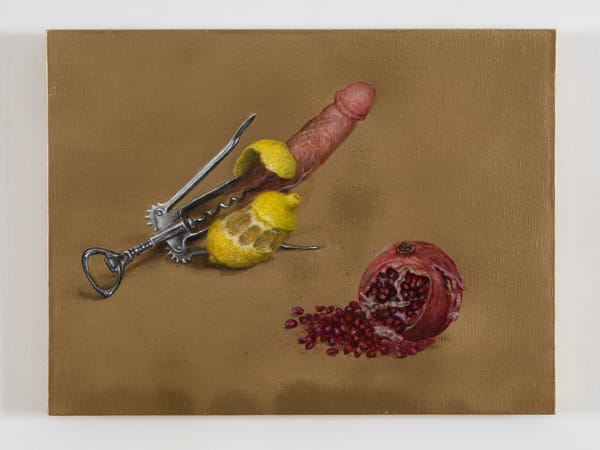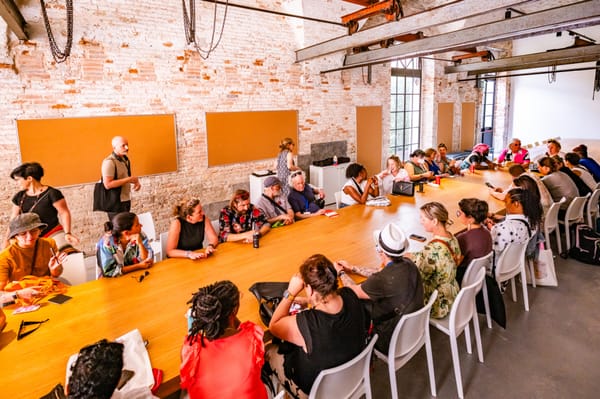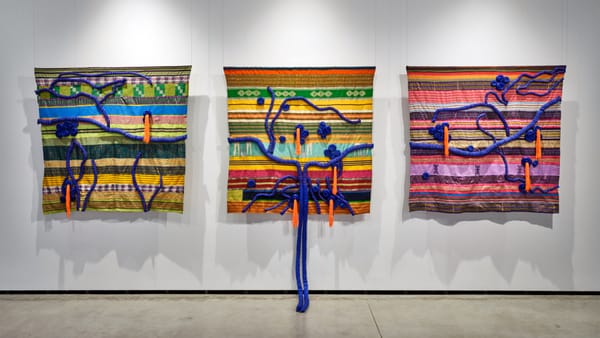Esperanza Spalding’s Flow
During the 53rd Annual Grammy Awards ceremony in 2011, jazz bassist Esperanza Spalding was awarded Best New Artist, a trophy assumed earmarked for Justin Bieber (who else?), and the scandal that ensued changed the recording industry forever.
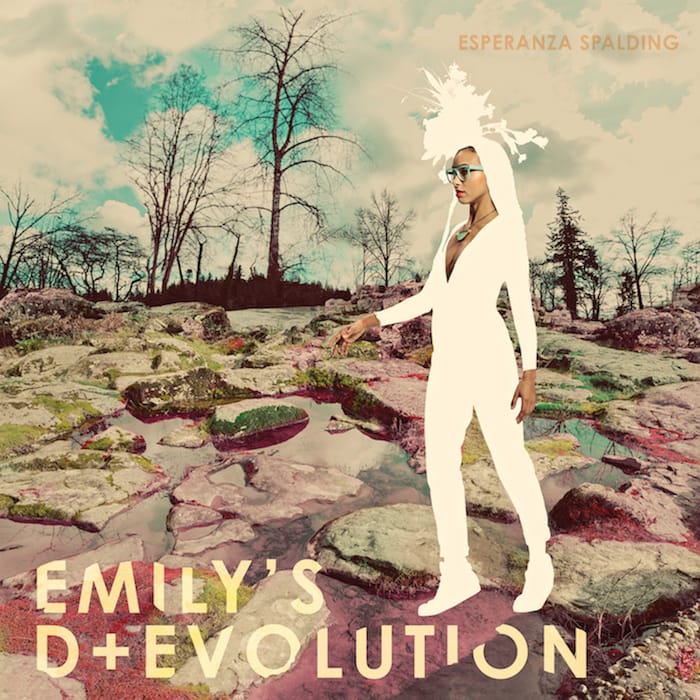
During the 53rd Annual Grammy Awards ceremony in 2011, jazz bassist Esperanza Spalding was awarded Best New Artist, a trophy assumed earmarked for Justin Bieber (who else?), and the scandal that ensued changed the recording industry forever. It prompted extensive reform at the National Academy of Recording Arts & Sciences, whose head honchos immediately changed the rules behind Grammy nominations to favor commercial pop musicians and prevented, preemptively, such a tragedy from ever, ever befalling the Grammys again. It triggered an insecurity complex in Bieber so nagging he went on a petty crime spree that has perhaps permanently soured him in the public eye. And it turned Esperanza Spalding into a full-fledged critical darling, a respected art star. Her new Emily’s D+Evolution, out since March, hasn’t finished high on the charts or broken any sales records, but it earned rave reviews from Rolling Stone, Pitchfork, and the Guardian. That’s why they give out these awards, right?
Esperanza Spalding is a bassist/composer/vocalist who’s invented her own daring style of jazz-pop fusion. She went to Berklee and has also taught there; she’s performed at the Nobel Peace Prize Concert to honor Obama; she’s collaborated with Bruno Mars and Janelle Monáe; as role models she cites Madonna and Ornette Coleman. (What a pair!) In the jazz world she’s been acclaimed since her 2006 debut Junjo, but her breakthrough was 2010’s Chamber Music Society, which is why she was considered a “new artist” at the Grammys in 2011. Since then, she’s released Radio Music Society in 2012, a self-avowed stab at pop crossover, and when that didn’t work she decided to take some time off to relax and chase her muse before returning, four years later, with Emily’s D+Evolution. How successful the new album will be outside the critical sphere I couldn’t say — on the one hand, her radio dreams are gone, with Radio Music Society’s moony love songs replaced by braver and artier meditations on freedom, love, and the creative impulse; on the other, jazz has become a fashionable genre in the pop world recently, and anyway, Emily’s D+Evolution achieves a streamlined poetic-melodic flow that’s very singer-songwriter. It’s her knottiest and most ambitious album, yet because of this it also transcends limitations that frequently arise in jazz song.
When I say that Spalding’s dirty little secret is pop songform, don’t expect anything too catchy. Mainstream rock critics tend to avoid jazz except when sympathetic outsiders like D’Angelo approach/appropriate it in an alien context. This is not just because it’s a whole separate world, but because in a popular context it doesn’t often mesh, with oodles of exceptions but still. One can only include so much room for improvisation before a nominal collection of pop songs becomes a runaway jam session, so many tricky chord changes and virtuoso players before a delicious confection turns bitter, or ornate, or slicker than the cleanest, most antiseptic cocktail lounge. The feeling goes both ways, too, as any number of jazz musicians, looking askance at the hummable tune, would be happy to testify. So Spalding’s synthesis is a subtle one. Instrumentally, Emily’s D+Evolution rides a rich, organic jazz groove unlike any other; defined by Spalding’s bass and Matthew Stevens’s jangly, dissonant guitar, it’s always shifting, crunching, changing angles, refracting shades of kaleidoscopic light through different colors, shapes, dimensions. Melodically, she writes long, tangled tunes whose skewed harmonies and delayed resolutions take some getting used to, as does the way she leaves room for verbal/metric overflow, regularly slipping extra words, phrases, sentences into her lines. Her songs do have distinct verses and choruses that complement each other, however, with calculated kick and hooky delight aforethought. From a sense of tight craft that runs counter to ideals of improvisatory freedom, to the irresistible thrill that comes once you’ve wrapped your head around her melodic logic, this is a pop strategy. That’s why Rolling Stone and Pitchfork have been raving about her while ignoring dozens of other honorable jazz musicians, and that’s why the songs actually turn out quite hummable in the end. But the point of the resulting album is neither tune nor groove but flow — constant, sweeping, sinuous forward motion, embodied in the lightness of her band and the piercing clarity of her voice.
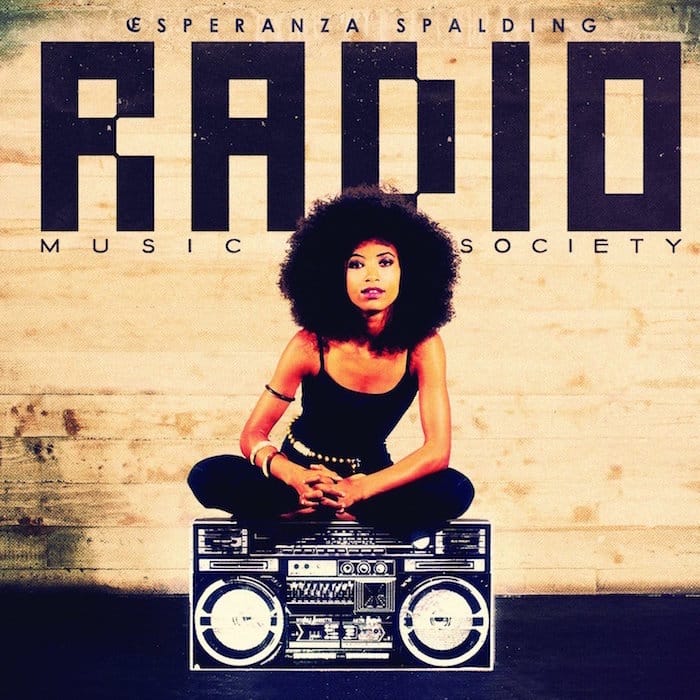
In this she resembles Joni Mitchell, specifically in her mid-’70s period — the Joni Mitchell who on albums like Hejira combined the polished, restless liquidity of her thrown-together pseudojazz band and the inherent speechlike rhythms of her sung prosody to form a music of endless slipstream, one evocative of colloquial language while also employing metric patterns (and words!) too elaborate and too artificial for a wholly naturalistic representation. That’s the idea on Emily’s D+Evolution. Spalding’s voice has more grit and less warble, more breath and less trill, her band more snap and less drift. But throughout the album they roll and rush through a comparable slipstream with its own singular sense of rhythm — always gliding or tumbling or cascading toward some distant, unspecified destination on the horizon — and its own sound too, shiny and multifaceted and angular, stacking several layers of blocky, percussive guitar chords and high, spiky guitar noodling and twanged rubbery bass around the swooping aerial contours of her singing. “Unconditional Love” and “Judas” foreground sweet, ascending/descending choruses while cutting them with warm, scratchy guitar distortion and fidgety drums. Sometimes the riffage gets harsher and more aggressive, as on “Good Lava.” Sometimes a soft, glittering horn provides background color, as on “Noble Nobles.” Sometimes she strips down to just bass and sings unaccompanied, as on “Farewell Dolly.” But always the focus is on her sharp, pretty, antsy voice, which leads the music by jumping all over the place and watching the band’s various instruments click together to ground her, swaying in her wake; lyrical and dissonant at once, her singing soothes the ear and jolts the brain. What’s more, however old-fashioned it may be for anybody tired of singer-songwriters expressing themselves, this approach also foregrounds her lyrics, and given her affinities for pop songform, she’s honed her verse. Perhaps “Unconditional Love,” which voices dissatisfaction with love as ritual and longs for some transformational magic to make it exciting again, or “Ebony and Ivy,” which applies a bunch of mixed nature metaphors to a reflection on class, education, and liberation, or “Funk the Fear,” which urges you to break down barriers and live a more fulfilled life, all reach too far too self-consciously. But I admire the way she slips long, Latinate words into her metric lines without forcing a rhyme or losing the talky, colloquial feel. And I love the way her thematic scope paints the portrait of a smart, committed, analytic young woman who likes to speak her mind and who isn’t afraid of big ideas, mixed metaphors and all.
The last song is an astounding cover of “I Want It Now,” written by Anthony Newley and Leslie Bricusse for Willy Wonka & the Chocolate Factory. In the movie, the song parodies and exaggerates Veruca Salt’s spoiled brattiness. Spalding turns it into a daring manifesto — as the piano plinks and bangs and Spalding’s vocal performance gradually gets wilder and shriekier, the song is recontextualized as an urgent demand on life, a demand for liberation and satisfaction and everything else one could ask for, all of which she wants now! She gets it, too. In heightening jazz song to a consciously stylized popular form, in crafting edgy melodies that blossom into beautifully complex flower patterns once you’ve heard them a few times, Emily’s D+Evolution is the rare album that realizes its ambitions and/or pretensions. It just keeps unfolding and unfolding, addictively so.
Emily’s D+Evolution (2016) and Radio Music Society (2012) are available from Amazon and other online retailers.


